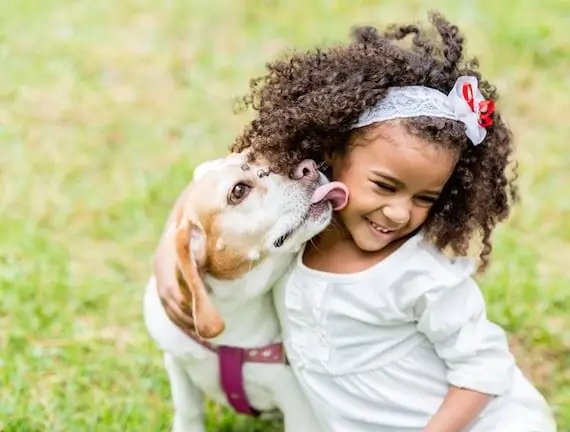
- Autor Daisy Haig haig@petsoundness.com.
- Public 2023-12-17 03:06.
- Naposledy změněno 2025-01-24 12:35.
Když si koupíte štěně, koupíte si „zdravotní certifikát“, který s ním bude mít. Jako každý doslovně smýšlející spotřebitel předpokládáte, že certifikát s tímto titulem znamená, že byl vyšetřen veterinářem a obdržel razítko schválení ve zdravotnickém oddělení.
Hádej znovu.
Minulý týden jsem vyslal hromadu e-mailů z mého seznamu FVMA (Florida Veterinary Medical Association). Tématem byl rozšířený profesionální zmatek ohledně OCVI (oficiální osvědčení o veterinární inspekci pro vnitrostátní prodej psa nebo kočky). OCVI, forma, která se nazývá běžným názvem „osvědčení o zdravotní nezávadnosti“, je jedním z dokumentů, které většina států vyžaduje, aby je veterinární lékař s licencí vyplnil, než bude možné zvíře prodat nebo přepravit přes státní hranice.
the point of this document? to ensure animals are vaccinated and free of parasites or other infectious diseases before sale, not (contrary to popular opinion, including mine before last week) to certify the animal’s complete health.
(at least that’s how it stands in the great state of florida, given the confusion that reigns over what these documents actually mean and how ocvis are to be filled out.)
i wasn’t sure i believed this. after all, it has always seemed to me that the purpose of this form was to ensure that unscrupulous breeders and pet shops couldn’t pass on clearly defective “merchandise.” even if you could care less about animal health and welfare, it makes sense that a health certificate should certify health at the time the animal is examined-in the interest of consumer protection, at the very least.
the emails on this thread proved otherwise. indeed, several veterinarians spoke out against the ocvi as a proof of health, referencing the need to avoid legal liability in the event that a purchased pet prove chronically ill or congenitally flawed.
silly me, i thought that was the point. since we get paid to sign these documents i figured the financial remuneration was in exchange for our expertise-that is, beyond pushing a few shots, checking for kennel cough and expertly scooping stool from a rectum for analysis.
wrong!
confused, i researched this issue. and here’s what i found:
apparently, the problem of “health certification” and veterinarian resistance to the issue stems from a drive to make vets liable for congenital illnesses that manifest up to a year after purchase when they sign ocvis.
example: a pup that was normal when a vet examined him at 8 weeks. six months later he’s diagnosed with hip dysplasia. and guess what? according to this proposed interpretation of ocvis the vet is potentially liable for his treatment.
given the choice between a document that makes me liable for what i can attest to and one that requires a crystal ball for the kind of accuracy i’m willing to sign my name to, i guess i’ll elect the former any day of the week. can’t blame my fvma colleagues on that score.
but why the either/or? why can’t i simply be liable for all the problems any reasonable vet should have seen at the time the exam?
honking heart murmurs, undescended testicles, certain obvious knee and hip diseases…
don’t these congenital niceties deserve to be included among the “health” issues we need to vet as vets?
i see pet shop pups and other shipped pets with two day-old ocvis bearing obvious congenital illnesses any third-year vet student could diagnose. clearly that’s wrong. someone needs to be accountable when these conditions are given a pass. but legally, all’s fair and square if a health certificate only deals in infectious diseases. after all, most states also have pet lemon laws making it “easy” to return a defective afflicted animal within a certain period of time. no harm no foul, right?
wrong again. no animal should be sold without a veterinarian’s stamp of approval within ten days of the sale. and that should mean that the animal appears to be completely healthy at the time of the exam. any congenital abnormalities should be written on the form. anything less means no sale. no way.
responsible breeders wouldn’t dream of doing otherwise. pet shops, on the other hand, exploit all the angles. they work with vets who know the loopholes as well as they do. they even try to get prospective owners to sign lemon law waivers, passing them off easily in the pile of paperwork that attends the point of sale.
as it stands, what you consider a health certificate for that puppy in the window may mean nothing except that said pup was vaccinated, no upper respiratory symptoms were noted and that no parasites were observed on the day the pup was presented to the vet for examination. but if vets are liable for only those meager, easily refutable functions, what does that say about the entire “health certification” process?
as my former ignorance of the law clearly implies, not all vets even know what they’re signing when they complete these forms. but you can bet the ones who work for the pet shops do.
check your state’s regulations to determine what your health certificates mean. even if you’ll never purchase a pet in your lifetime, your moral compass should drive you to care about what happens to thousands of animals every day in your state/province/country.
no-health health certificates? they simply ensure that poor quality purveyors of congenitally flawed animal flesh can continue to breed animals irresponsibly, unfairly and cruelly. and that’s gotta change.
Doporučuje:
Canimx: Poskytovatel Záchrany Zvířat A Zdravotní Péče Pro Zvířata V Mexiku I Mimo Něj

Zjistěte, jak Joerg Dobisch a jeho manželka založili Canimx, záchranu zvířat a nemocnici, která pomáhá více než 1000 psům měsíčně v La Paz v Mexiku
Většina Majitelů Nepoužívá Zdravotní Pojištění Pro Léčbu Rakoviny Domácích Zvířat

Celostátní pojišťovna nedávno ohlásila prvních deset zdravotních stavů postihujících psy a kočky a s nimi spojené náklady na základě údajů z nároků u více než 550 000 domácích mazlíčků. Rakovina nejenže nebyla hlášenou nejčastější chorobou, ale nevytvořila ani jeden seznam. Proč u domácích mazlíčků převládá rakovina, proč majitelé nevyužívají pojištění, které by ji krylo? Přečtěte si více
Co Je Zdravotní Pojištění Zvířat?

Dospělí v USA si mohou pojistit téměř cokoli cenného, od svého zdraví až po svůj domov. Ale co jedna z nejdůležitějších věcí v životě majitele zvířete: zvíře, které milují a starají se o něj? Zde jsou některé z vašich nejdůležitějších otázek a jejich odpovědi. Přečtěte si více
Přehlížené Zdravotní Stavy Způsobené Obezitou Zvířat

Téměř 60 procent zvířat má nadváhu nebo obezitu. Tento stav byl spojen se zvýšeným rizikem závažných onemocnění, jako je cukrovka, onemocnění kloubů, onemocnění ledvin, onemocnění plic a některé druhy rakoviny. Často jsou přehlíženy stavy postihující řitní žlázy a kůži způsobené nadváhou nebo obezitou
Sliny Zvířat: Zdravotní Riziko Nebo Zdravotní Přínos?

Jsou sliny zvířat zdravotním rizikem nebo výhodou? Odpověď je pravděpodobně obojí. Rutinní veterinární péče a jednoduché hygienické postupy však mohou snížit obavy, že lízání vašeho domácího mazlíčka představuje zdravotní riziko pro rodinu
